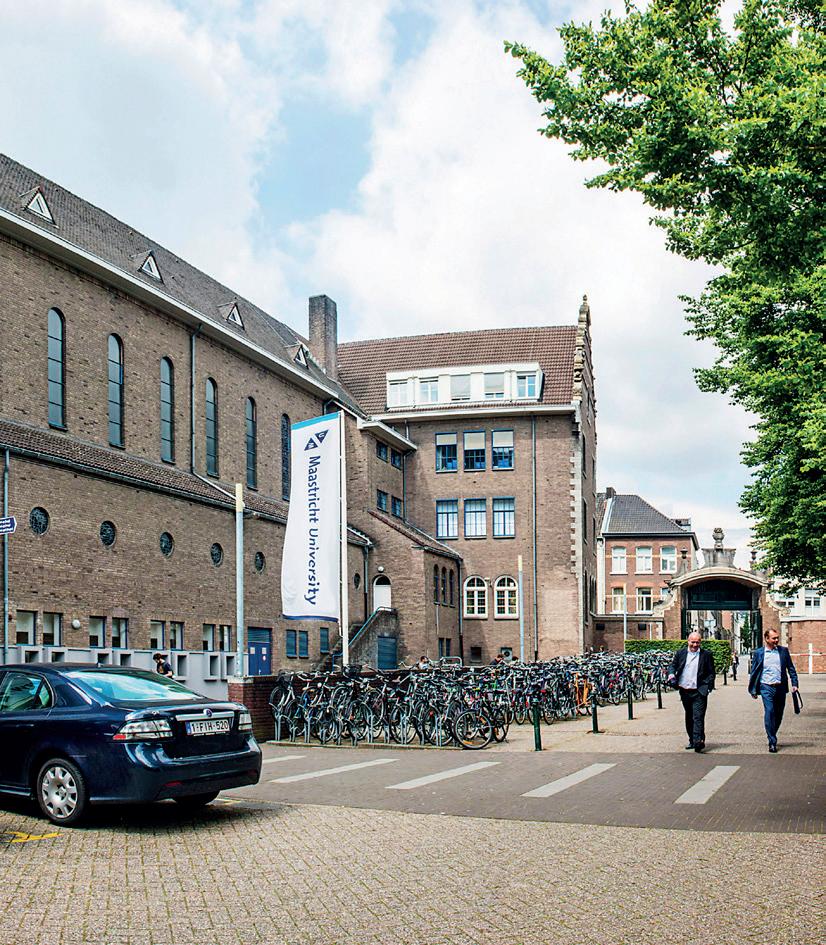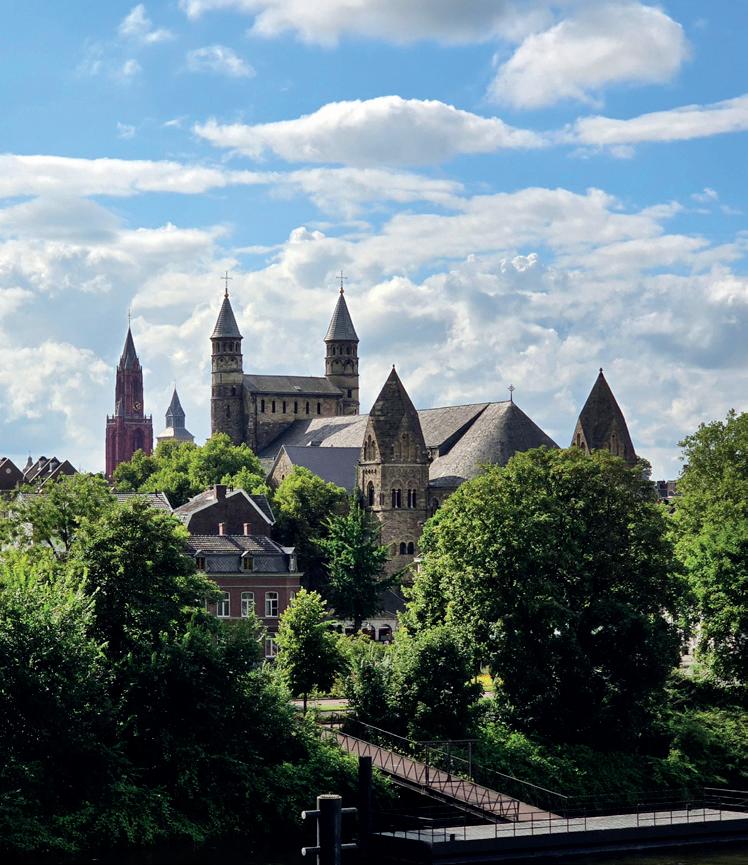Business & Economics in Europe
The European Union (EU) is a major global trading power. With the introduction of the Euro and EU enlargement, key steps towards integration were taken to increase European prosperity and competitiveness. However, with the fragile economic recovery in the Euro-zone and the repercussions of Brexit, what is the future of the European economic experiment?
Maastricht gained international fame as the birthplace of the Euro, and is located between the major economic centres of Brussels, London, Frankfurt and Amsterdam, making it the ideal place for educating and training the global business leaders and economists of tomorrow.
World-class business & economics school
Students in the Business & Economics in Europe programme are directly enrolled at Maastricht University (UM) and take classes at the School of Business and Economics (SBE), which is accredited by the European EQUIS, the American AASCB and the prestigious AMBA. This Triple Crown accreditation is held by less than 1% of business schools in the world. Students can also choose courses from the Center for European Studies (CES).
Courses
Students can choose from more than 400 bachelor-level courses taught in English at UM. At least half of the courses should be selected from the programme-related majors below.
Majors
• Accounting
• Business Administration
• Economics
• Entrepreneurship
• Finance
• Information Management
• (International) Business
• Management & Organisation
• Marketing
• Strategy
• Supply Chain Management
CES coordinators help students select courses to suit their academic goals. They guide them through the academic process and work with them to build a personalised curriculum
Every student enrols in a CES core course, which combines strong academics, integrated field trips and unique hands-on experiences. During this course, students can undertake an Independent Study Project (ISP). A complete course overview can be found on the CES website.
Integrated academic and cultural experiences
Introduction
The programme starts with a two-week introduction, which includes CES services, the Dutch Discovery Trip, a tour of Maastricht and the surrounding area, UM orientation, a ProblemBased Learning (PBL) workshop, a cultural awareness lecture and integration into Dutch student life.
Dutch Discovery Trip
Our Dutch Discovery Trip is an exciting journey through the Netherlands, where students will immerse themselves in culture, history and unique experiences at iconic sites such as Kinderdijk.
Paris Cultural Weekend
Students will discover the grand boulevards and renowned architecture of the City of Light, and experience its rich history, artistic beauty and cuisine.
Belgian Day Trip
This trip is filled with exploration and charm. After witnessing some of nature’s most stunning underground treasures at the Caves of Han, students will travel to the rolling countryside for a guided tour of the historic Val-Dieu Abbey.



“The School of Business and Economics immersed me in a global community. The discussion-based courses with diverse perspectives pushed me outside my comfort zone, creating a transformative experience that will continue to shape my future.
Mackenzie Simon , University of Denver
Academics
Programme structure
This programme is structured as follows:
• 18 -week semesters;
• Block periods 1 and 2 in fall, block periods 4 and 5 in spring;
• Two courses per block, with the option of adding a language course or skills training;
• Possibility to earn 24 - 32 ECTS credits per semester (in most cases, 2 ECTS credits are equal to 1 American credit).
High academic standard
CES programmes are designed for enthusiastic and intellectually curious students dedicated to expanding their academic horizons while abroad. To ensure that students excel, CES offers extensive academic advising, workshops and continuous support.
Practical information
Programme dates
Spring 2026 16 January - 6/13 June 2026 (Depending on class selection) Fall 2026 14 August - 19 December 2026
Should students have internship plans that require an early departure at the end of a spring semester, CES will endeavour to help them select courses accordingly.

T: +31(0)43 388 5282, E: ces.info@maastrichtuniversity.nl
Tuition
The tuition fee for spring 2026 is € 8,950* and includes:
• Registration at Maastricht University;
• Academic advising;
• All courses;
• CES course materials;
• Extensive introduction including the Dutch Discovery Trip;
• CES cultural and field trips;
• CES services (such as an airport pick up, a Dutch SIM card, support from a wellbeing officer and 24/7 emergency assistance).
Housing
CES students stay at the International Student Guesthouse of Maastricht University, where they have the following options:
• Single or double room (shared bathroom facilities);
• Private kitchen or communal cooking facilities.
Housing costs for spring 2026 range from € 3,823 to € 5,742*.
Visa & residence permit
• Most students require a temporary Dutch residence permit (VVR) for stays longer than 90 days. For spring 2026 the cost for a temporary residence permit is € 243*;
• Some students will need a visa (MVV) to enter the Netherlands.
CES assists students with every part of this process.
Insurance
Students need sufficient health care, liability and travel insurance for the duration of their stay. Most students are covered through their home university. Please refer to the CES website for more information.
Application requirements
Applicants are required to:
• Have a minimum GPA of 3 0;
• Be in good academic standing.
CES programmes are competitive. Therefore, early application is recommended. More information about the programme and the online application form can be found on the CES website.
Application deadline Spring 1 October Fall 1 April
* For detailed and up-to-date tuition, housing and residence permit fees, please check our website. Although this brochure was made with the utmost care, no rights can be derived from it.

